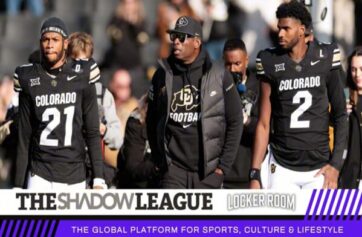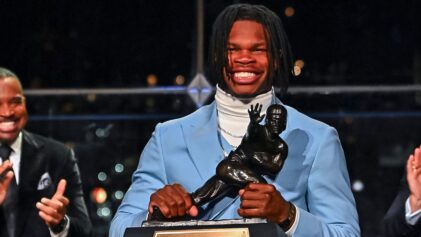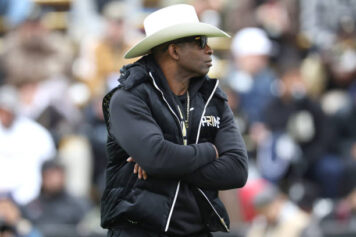The levees of college sports broke the moment name, image, and likeness deals began on July 1, 2021.
Ever since Travis Hunter flipped from his commitment at Florida State University to Jackson State University, a new era began. The days of the Power Five schools dominating the recruitment ranks are threatened by various factors, including NIL deals and the intangibles that JSU coach Deion Sanders brings.
“He wants my hands on him,” Sanders said to Andscape about Travis Hunter this week. “He wants me to mold him. He wants me to be his navigational system through life. He wants to be that dude.”
However, when Saban said Wednesday that “Jackson State paid a guy a million dollars last year” for a player, he was disingenuous about his NIL era process.
NIL Collectives
Currently, “collectives” have been organized to benefit student-athletes at specific institutions. Although the models vary, the concept is the same, alumni groups can align, forming a company that provides NIL opportunities to institution recruits.
The University of Alabama has a collective called High Tide Traditions. It was “established to harness the power of Name, Image, and Likeness with student-athletes to make and propel positive business relationships across the city, state, region and nation,” according to Business of College Sports.
The organization claims that “through strategic partnerships utilizing data analytics, it is important to High Tide Traditions that student-athletes will be engaged in amplifying the exposure for our business partners through relatable and authentic content, appearances, and other mutually beneficial services.”
https://www.youtube.com/watch?v=0oykNLSlb1w
The Accusation
This week Saban said Texas A&M, which uses a collective reportedly known as The Fund, “bought every player on their team.”
“You read about it; you know who they are,” Saban said at a 50-day countdown event for the World Games. “We were second in recruiting last year. A&M was first. A&M bought every player on their team. Made a deal for name, image and likeness.
“We didn’t buy one player. Aight? But I don’t know if we’re going to be able to sustain that in the future, because more and more people are doing it. It’s tough.”
Saban reportedly was talking to a room full of Alabama boosters.
Double Standard
Saban’s argument that coaches are going rogue and skirting the law to entice players to their programs is glaring. However, the undertone is one of surprise that the nation’s top recruit would attend an HBCU like Jackson State.
While the NIL process is still developing, it is clear that a system based on free labor that has yielded millions for top institutions now realizes the tides are turning for their good recruiting fortune. The cards increasingly are in the hands of the players.
The college sports spectrum has operated more like a plantation-level system, and like all labor camps, the only participant that wants the system to change is the laborer.
Changing Of The Guard
As a result, having a Hall of Fame-level coach, or even the revenue an NIL collective can generate for a student-athlete, isn’t enough anymore. Nick Saban, at 70 years old, is unlikely to want to change the way business has been done, especially since he has reaped many of the rewards.
With the increased opportunity for student-athletes, a coach like Deion Sanders also opens the door to learn under an NFL legend and a Black cultural icon. Jackson State University has no listed NIL collective, and the only HBCU to have one is Grambling State University with The Icon Collective. But Sanders was enough for Travis Hunter.
What will be enough for Nick Saban? A reversal to the old ways that got him and the University of Alabama paid.



